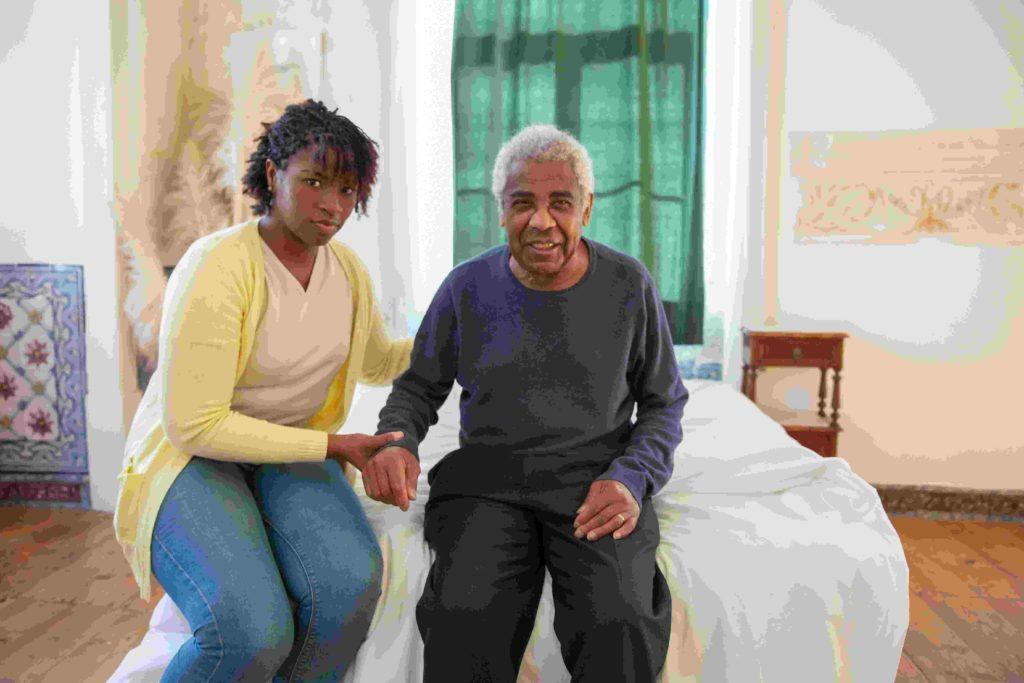
On the 21st of September (World Alzheimer’s Day) we acknowledge the patients with Alzheimer’s disease as well as the caregivers who assist these patients.
A generative brain disease and the most common cause of dementia, Alzheimer’s affects memory, thinking and behavior. Symptoms eventually grow severe enough to interfere with daily tasks. And as you can imagine, Alzheimer’s also puts a huge burden on many caregivers and family members.
In sub-Saharan Africa, dementia (including Alzheimer’s disease) is slowly rising on the agenda. Just last week for example, a Nature conference on the future of dementia took place in Nairobi, Kenya (11-12 Sept), in partnership with the Davos Alzheimer’s Collaborative, and the local Aga Khan University. Not a moment too soon, as indeed, Africa “faces an uphill battle to get ahead of the looming dementia crisis”.
A few relevant stats perhaps: an estimated 2.13 million people were already living with dementia in sub-Saharan Africa in 2015, with numbers projected to nearly double every 20 years. The total cost of dementia in sub-Saharan Africa was already an estimated US$6.2 billion in 2015 (with two-thirds to three-quarters of the total costs attributed to informal care). And annually, over 367,000 new cases of dementia arise in sub-Saharan Africa. So as has been pointed out in recent months, “dementia could become one of Africa’s biggest health crises unless urgent interventions are introduced to counter the continent’s disproportionate incidence of the 14 changeable risk factors” (as flagged in a recent Lancet Commission).
At the conference in Nairobi, focus was among others on risk prevention. For example for hypertension and diabetes, far more can ànd should be done in many African countries in terms of early diagnosis and treatment. Indeed, with the rise of unhealthy diets, smoking, sedentary lifestyles, and excessive alcohol consumption in Africa, there’s a steady increase in non-communicable diseases such as hypertension, diabetes, and obesity – all key risk factors for dementia. Others speculate that some risk factors are perhaps more relevant in Africa (eg climate change related ones).
As experts have noted, the high prevalence of modifiable risk factors in African countries certainly provides fertile ground for local scientists. But more in general, research is needed in almost all domains of the dementia field in sub-Saharan Africa.
But not just risk reduction, also early diagnosis, improving dementia awareness and access to services (through Universal Health Coverage) are urgent challenges that countries in sub-Saharan Africa must tackle. And clearly, rights must be recognised, respected and protected to empower people living with dementia and those who support them.
Let’s focus a bit more on the lack of awareness and stigma around Alzheimer’s and other forms of dementia in some African countries, including my own. And what is being done about it.
In Kenya, some grassroots organisations are raising awareness on the condition and providing psychosocial support to affected family members. Such organisations include the
Alzheimer’s and Dementia Organisation of Kenya (ADOK), Sir James Care Homes Kenya, and the Africa Institute of Mental and Brain Health (AFRIMEB). Among others, these organisations use social media to raise awareness on dementia; some also offer holistic care.
As noted by experts, “many people in Africa do not know what dementia is. Often, they believe it is a normal part of aging, and when symptoms become more severe or unusual, some attribute them to witchcraft or evil spirits.” The stigma and supernatural beliefs cause many patients to be isolated, leading to even more distress. In turn, understanding dementia as a medical condition would lead to people being treated with more compassion and respect.
An ethnographic study conducted by the Aga Khan hospital staff in Nairobi, led by Dr Edna Bosire (from the Brain and Mind Institute) is currently exploring attitudes and perceptions of dementia in Kenya. From gaining an in-depth understanding of patients, caregivers and healthcare providers, it aims to offer better care to patients and boost their support systems.
Similar and other challenges have been noticed by health care professionals in Uganda, eg. on the use of screening tools (eg cognitive tests) that may not be adapted to the context, the lack of established facilities to engage in specialised imaging to look for changes to the amyloid and tau proteins that accumulate in the brains of people with Alzheimer’s, the high cost of potential new treatments, …
Staff involved in caregiving for dementia patients can also provide invaluable insights and are thus a valuable resource. Lessons can be learnt from countries that have higher life expectancies and ageing populations, to get insights on approaches used such as adult-care clinics and respite time. This is especially important for caregivers who are otherwise likely to get a burnout and require a time out. Strategies that have already been found effective could be tailored to the context to fit various scenarios.
And if we dare to dream a bit, perhaps eventually the global south could offer more comprehensive packages and support to patients and families through social protection initiatives. While clearly resources in many sub-Saharan countries are anything like in the EU, with the current debt crisis adding to this situation, the Strategic plan 2021-2025 for Europe could still offer some inspiration perhaps, outlining a comprehensive approach that is human rights based and multi-faceted in order to ensure better outcomes.
So let us raise awareness on Alzheimer’s disease, improve early diagnosis, tackle risk factors, learn from existing evidence, and offer more comprehensive care to patients, families and health care providers!